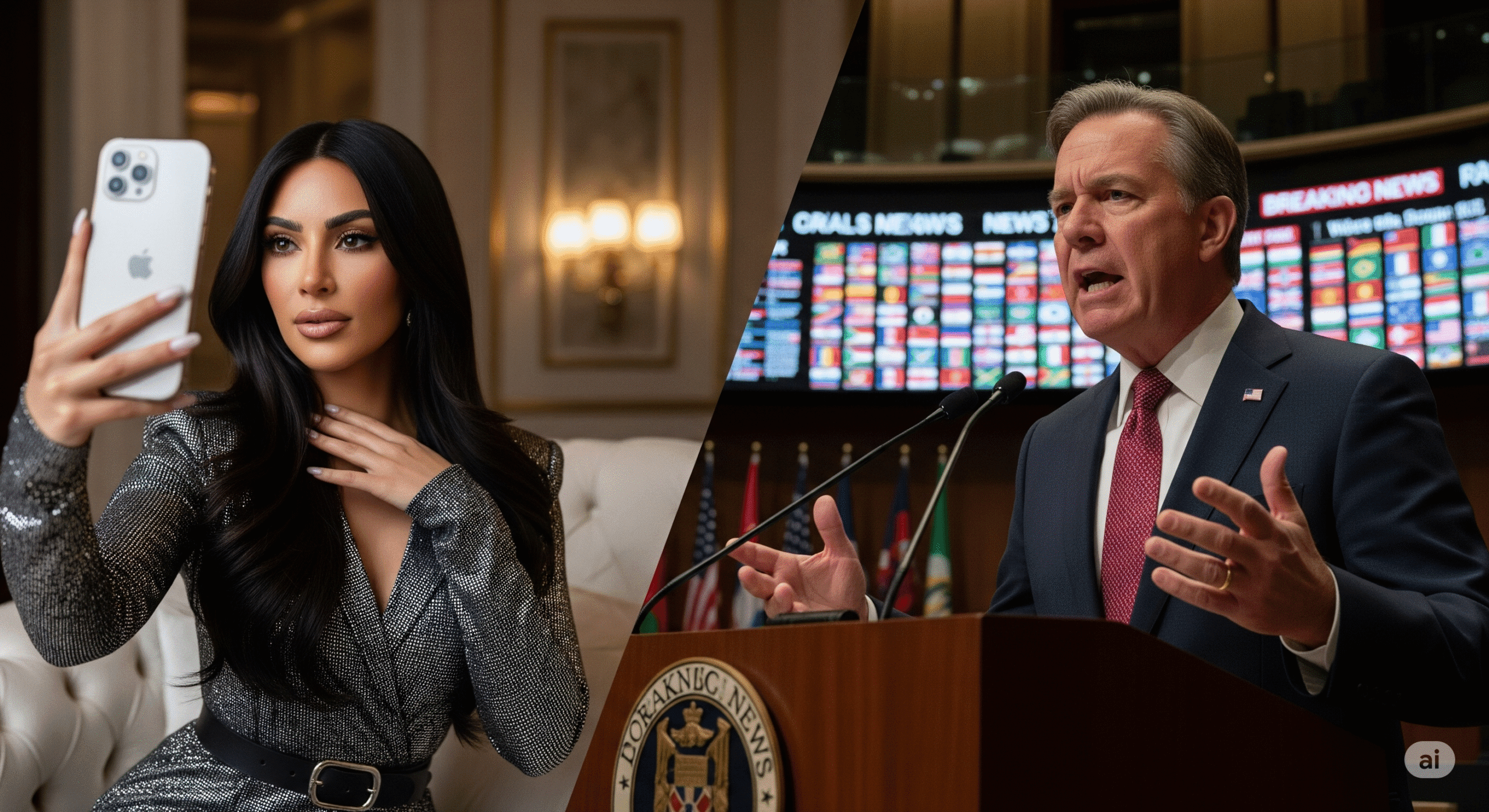In the age of digital connectivity, influence no longer belongs solely to politicians, CEOs, or Hollywood celebrities. Today, some of the most powerful voices shaping opinions, trends, and even public policy come from social media influencers—people who have leveraged the power of personality and platform to command mass attention. This evolution, spanning lifestyle, politics, finance, and activism, reveals a dramatic shift in how modern society defines authority and persuasion.
The Kardashian Blueprint
At the forefront of this transformation were the Kardashians. Rising to prominence through reality television, the family became more than just tabloid fixtures—they became a brand empire. Through curated content, aspirational lifestyles, and constant online engagement, the Kardashians redefined fame and monetized it like never before. Kim, Kylie, and Kendall, in particular, mastered the art of turning personal branding into a business model. Beauty lines, fashion deals, and lifestyle products weren’t just side projects—they became cultural mainstays powered by social media.
What made their model groundbreaking was how it bypassed traditional media filters. Instead of relying on movie studios or TV networks, they communicated directly with fans. Their posts, stories, and livestreams weren’t just entertainment—they were influence in its purest form: personal, persuasive, and profitable. This era ushered in the rise of influencers who could rival the marketing power of multinational corporations.
Matt Wallace and the Digital Echo Chamber
While the Kardashians used social platforms to promote style and lifestyle, others began using the same tools to shape political and cultural conversations. Matt Wallace is a notable example. Originally known in cryptocurrency circles, Wallace’s online presence grew quickly. He became a familiar voice on platforms like X, offering commentary that blurred the lines between personal opinion and public narrative.
With millions of followers, Wallace represents a new breed of influencer: controversial, unfiltered, and unbound by institutional standards. His influence isn’t just about likes and shares—it’s about shaping perceptions. But that reach comes with consequences. In recent months, Wallace has come under legal scrutiny for false claims tied to breaking news events, highlighting the very real power influencers now hold—and the risks when that power is misused.
Tucker Carlson: Independent, Influential, and Untethered
Tucker Carlson’s journey from cable news to digital domination exemplifies how political commentators are reshaping the influencer landscape. After leaving mainstream television, Carlson didn’t disappear—he reinvented himself. Launching his own network and producing interviews, including headline-grabbing sessions with world leaders, Carlson has maintained and even expanded his reach.
Unlike traditional journalists, Carlson now speaks directly to his audience without editorial oversight. His shows receive millions of views across platforms, proving that influence in the digital era depends more on connection and consistency than credentials. By blending news with opinion and offering content outside conventional channels, Carlson taps into a growing audience disillusioned with legacy media.
The Evolution of Influence
The transition from red carpet glitz to raw political discourse is part of a broader evolution. Today’s influencers span a spectrum—from beauty bloggers and fitness coaches to financial analysts and geopolitical commentators. The connecting thread is direct engagement. Audiences no longer wait for vetted headlines—they get their information in real time from people they trust or admire, often without fact-checking.
What’s changed is not just the platform, but the nature of influence itself:
- Trust is personal: Whether someone is selling skincare or political ideology, followers believe because the influencer feels relatable—even if curated.
- Speed trumps accuracy: Viral clips and trending topics move faster than newsrooms can respond, making misinformation a persistent threat.
- Platforms are amplifiers: Algorithms reward engagement, not accuracy. Controversy, sensationalism, and emotion often get more reach than nuance.
- Monetization drives messaging: Influencers now sell subscriptions, endorsements, and even ideology, blurring the line between passion and profit.
A Changing Media Ecosystem
This shift poses complex challenges. As influencers gain power, the role of traditional gatekeepers—editors, journalists, institutions—has diminished. The result is a fragmented media landscape where narratives compete chaotically, often without clear accountability. Legal actions, such as defamation lawsuits against online figures, signal growing concern over this unchecked influence.
Yet, the model is unlikely to fade. If anything, influencer-driven communication will continue to grow, especially as younger generations favor direct-to-source content over institutional voices. Whether they trust a political commentator, a crypto enthusiast, or a makeup mogul, audiences today crave authenticity—or at least the appearance of it.
What Comes Next?
The influencer economy is maturing. Expect to see more crossover—political influencers launching products, lifestyle influencers pushing activism, and even former journalists turning independent. With influence comes responsibility, but also a unique opportunity: to shape culture, spark dialogue, and hold attention in a distracted world.
From Kardashian glam to Carlson gravitas, the power of influence is no longer about who you know, but how you connect. In 2025, the question isn’t whether influencers matter—it’s how we choose to follow them, and what that says about us.












